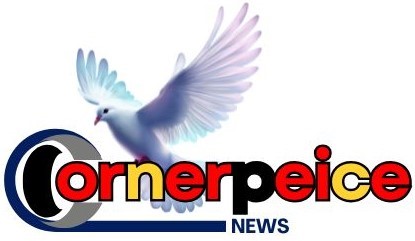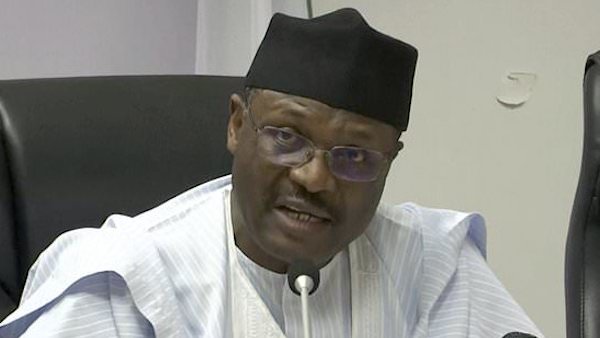Only 150 days before election day are permitted, and voting must end 24 hours beforehand. Even before INEC releases the official schedule, he claims, a lot of political players are still in full campaign mode.
Although the statute stipulates penalties for campaigns launched within 24 hours of the polls, he pointed out that it says nothing about actions taken before to the 150-day mark, creating a gap that makes enforcement difficult.
It is extremely concerning, he said, since the commission and other regulatory agencies are unable to address this issue under the current structure.
Yakubu was certain that the panel, which included officials from the National Assembly, political parties, civil society organizations, media regulators, and legal experts, would produce specific recommendations to improve Nigeria’s electoral rules and fill in any gaps.
We must all do our part to protect our elections and strengthen democracy. The talks today, I think, will produce workable solutions to deal with this expanding problem,” he continued.
Prof. Attahiru Jega, a former chairman of INEC, expressed grave worries about the nation’s growing number of early political campaigns, warning that the practice jeopardizes democratic stability and electoral reputation.
During his keynote speech, Prof. Jega denounced early campaigns as a “unacceptable anomaly” that undermines democratic norms and erodes public confidence in the electoral process.
He said that even though the Electoral Act of 2022 specifically limits campaigns to 150 days prior to elections, politicians—particularly those in positions of authority—are already holding rallies, running ads, erecting billboards, and launching projects almost two years before the elections.
“Incumbents benefit from premature electioneering, which also increases needless political friction and fosters impunity. Jega warned that it might jeopardize the democratic process as a whole if left uncontrolled.
By funding initiatives through so-called “third-party” organizations, many of which function outside of campaign finance laws, he charged political actors with taking advantage of legal loopholes.
The majority of these third-party campaigns are prohibited. He claimed that when incumbents or their supporters engage in them with impunity, lawlessness results and public trust in the system is damaged.
Jega called on INEC, security forces, and anti-corruption organizations to increase enforcement, pointing out that nations like Australia, Mexico, and India have effectively stopped the trend with severe penalties.
He suggested that Nigerian law establish a precise definition of premature campaigning and impose severe sanctions.
Additionally, he advocated for tighter oversight of campaign funds by the EFCC and ICPC, better cooperation between INEC and State Independent Electoral Commissions (SIECs) in punishing violators, the prompt establishment of an Electoral Offenses Commission and Tribunal, and holding incumbents and political parties responsible for the actions of support groups.
The voting environment in Nigeria has to be cleaned up much more. “The credibility of the 2027 polls must be protected by defining mature campaigns in law, imposing severe penalties, and guaranteeing strict implementation,” Jega stated.
The trend, according to Prof. Abdullahi Abdu Zuru, Chairman of the INEC Electoral Institute Board, is a rising misuse of social media platforms, religious gatherings, cultural festivals, and charitable giving to cover up early campaigning.
“This distortion undermines public trust, detracts leaders from governance, and increases the cost of political competition,” he said.
Premature campaigns have far-reaching effects, including distorting electoral fairness, raising the cost of political participation, removing elected people from their duties, and eroding public trust in the system, Zuru said.
In particular, he pointed to the rise in billboards, branded cars, skits, songs, and hashtags on social media as proof that contenders are using digital channels to obtain an early lead.
The discussion, which was attended by representatives of political parties, the Nigerian Bar Association (NBA), NBC, ARCON, civil society, and media partners, decided that immediate legal changes, more robust enforcement, and ongoing civic education are necessary to sanitize Nigeria’s electoral environment.
INECR Honors David Mark for Leading ADC
In the meantime, the African Democratic Congress (ADC) leadership, led by former Senate President David Mark, has been formally acknowledged by the Independent National Electoral Commission (INEC).
Read Also: Amadi: Natasha’s Case Reflects Overreach and Abuse of Privilege
The decision successfully ends the ongoing leadership dispute that caused the opposition party to experience months of uncertainty and internal conflict, according to information obtained by Daily Independent.
The David Mark-led executive continues to be the ADC’s true leadership structure, according to a statement posted on INEC’s official website.
Senator David Mark is recognized as the National Chairman, Dr. Ibrahim Ahmad Mani is the National Treasurer, and Ogbeni Rauf Aregbesola, the former governor of Osun State, is the National Secretary, according to the list that was made public on Wednesday. The National Financial Secretary, Akibu Dalhatu, and the National Legal Adviser, Prof. Oserheimen Aigberaodion Osunbor, are two other important members of the executive.
The national secretariat of the party can be reached at No. 4, Oyo Street, Area 2, Abuja, 08055008888, 08027789181.
A new era for the ADC is marked by the appointment of Senator David Mark as its National Chairman. Mark is a seasoned politician and well-respected elder statesman who has served in the top echelons of Nigerian government for decades.
In Nigeria’s democratic history, he was one of the longest-serving Senate Presidents, holding the office from 2007 to 2015. The National Assembly was largely recognized with bolstering legislative independence under his direction, and it experienced relative stability.
Mark has dominated Nigerian politics since the return of democracy in 1999, even outside of the legislature. He was known as a grassroots politician, a consensus builder, and a link between the younger and older generations of leaders throughout his five terms in office representing the Benue South Senatorial District. As Nigerians long for more powerful opposition voices before the general elections in 2027, political analysts view his foray into opposition politics through the ADC as a daring attempt to recast the party as a competitive alternative on the national scene.
Leadership disputes have weakened the ADC’s organizational strength and damaged public trust in recent years, making it one of Nigeria’s most well-known opposition parties. Mark’s ascent to the leadership, along with that of other well-known politicians like Aregbesola and Osunbor, is anticipated to provide the party’s operations new impetus and legitimacy.



